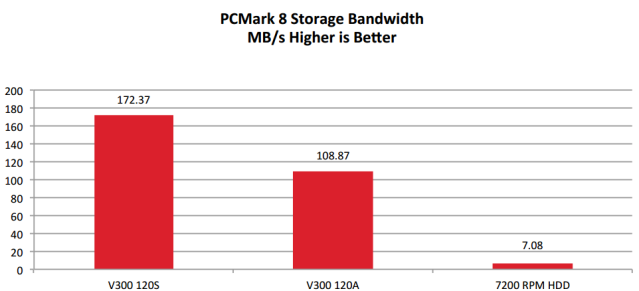Manufacturers reduce the cost of SSD configuration after launching the model on the market

Manufacturers of SSD-drives Kingston, OCZ and PNY are caught in the ugly practice to change the specifications of devices after they enter the market. The scheme is simple: the model receives positive reviews in the media and high test results, then it is cheaper to make a complete set - and cheaper products with degraded performance are sent to customers.
The first distinguished company was Kingston, which first released a V300 SSD drive with synchronous flash memory (model V300 120S), but over time replaced it with a cheaper asynchronous NAND (model V300 120A).

Kingston V300 drive performance with synchronous and asynchronous NAND
')
The example of Kingston was followed by OCZ Technology with one of the old SSD models.
Now PNY should be added to this unpleasant list. Initially, reviewers praised the high performance PNY Optima drives equipped with a Silicon Motion controller.
But it turned out that only some of the drives are equipped with Silicon Motion controllers. Some are equipped with SandForce controllers.
PNY assures that SandForce is installed in a smaller part of the products, these drives "correspond to the minimum declared performance", and in some tests even overtake Silicon Motion. However, individual users show lower performance compared to tests published in the media. The slogan of “minimum declared performance” is just a tricky marketing tool when results are measured in specially selected synthetic tests.
They say that a similar practice to reduce the cost of equipment exists in the automotive industry and is called decontenting .
Some food manufacturers are also seen in reducing the weight / volume of the product without changing the price.
Source: https://habr.com/ru/post/226275/
All Articles